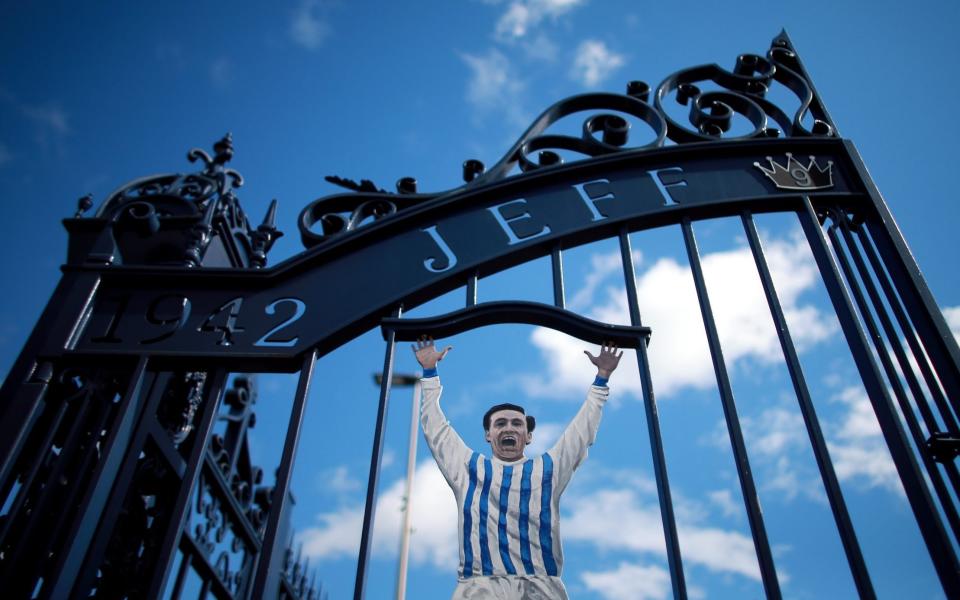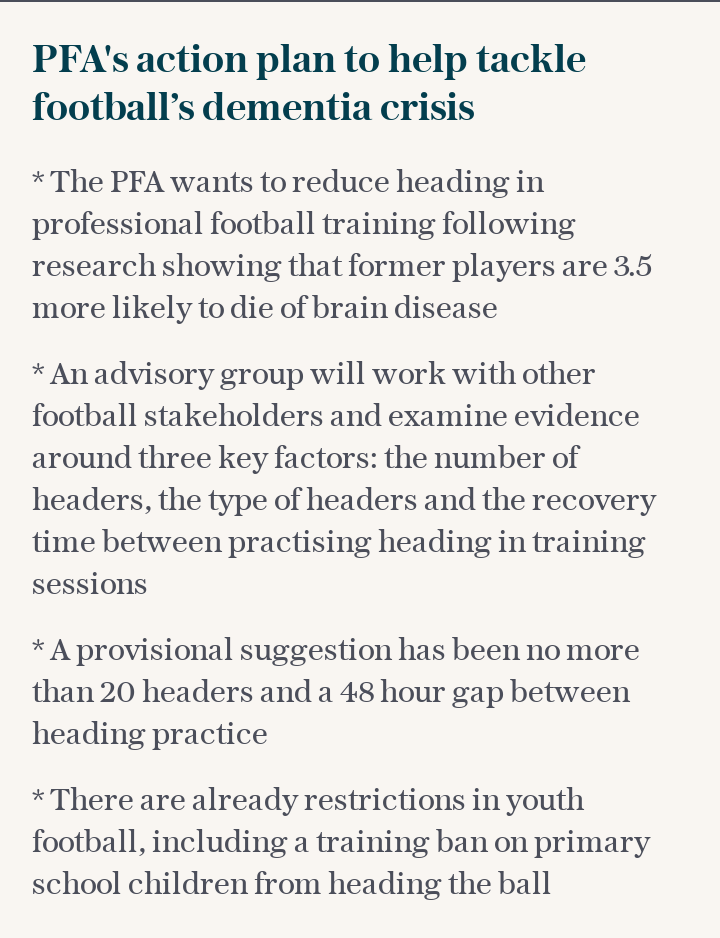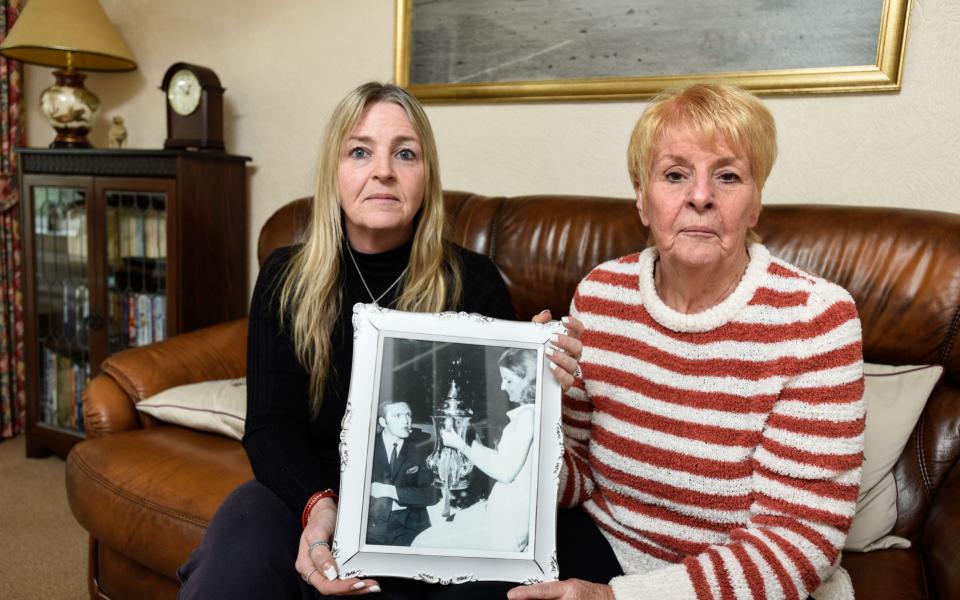Exclusive interview: 'PFA wants to change and asked us for our help but all is not forgiven'

‘It’s not about me, it’s about the players and their families – because what they go through can be just horrific,” says Dawn Astle, as she explains why, after years of aiming criticism at the Professional Footballers’ Association, she has taken up the offer with her friend, Rachel Walden, to work alongside the players’ union.
And for an illustration of her point, you need look no further than the families themselves of Jeff Astle and Rachel’s father, Rod Taylor, the former Portsmouth, Bournemouth and Gillingham wing-half.
Jeff died exactly 19 years ago this week and, for Laraine Astle, the impact is still felt daily of what she went through in caring for her husband as his dementia aggressively took hold. Laraine was subsequently diagnosed with rheumatoid arthritis – a consequence of the stress – and has been living with the impact on her immune system since. Now 73, she is clinically extremely vulnerable and so her only outings in more than 10 months during the Covid-19 pandemic have been to the doctor’s surgery.
For Rachel, the trauma of seeing her father’s similarly brutal decline was also compounded by the harrowing impact on her mother, Penny Taylor, who began to exhibit symptoms of Parkinson’s and motor neurone disease during the final months of her husband’s life.
“I remember first seeing a tremor in her right leg and she just looked at me and said, ‘Don’t, I can’t be ill’,” says Rachel. “I knew she had something serious going on. She became very fragile in the last year of dad’s life – barely able to walk, no strength in her arms, couldn’t open jars or water bottles. It sent her on a downward spiral. I am convinced that what she went through accelerated the process.”
Penny died on Boxing Day, but the suggestion for Dawn and Rachel to work with the PFA was made a few weeks earlier, in November. It was not an easy decision. They had previously felt deeply let down by the PFA, but were also absolute in their desire to help families in a similarly desperate situation.
They held conversations with PFA officials and, with chief executive Gordon Taylor departing by the end of the season and the recommendations of an independent review being implemented, did sense the seeds of authentic change.

“Although we lost mum at Christmas, we had spent a lot of time speaking about dad and dementia,” Rachel says. “There was a lot of talk about litigation and mum would always say ‘but how is that gong to help the families now?’ That resonated and, when I told her about the PFA approach, she said, ‘Do it. Your dad would be so proud’. It is about helping the families – that’s all we want.”
Once Dawn got over the shock of the PFA approaching her, she went through a similar thought process. “They’d never asked before,” she says. “They wanted to change and were asked for help in doing it. That doesn’t mean, at a stroke of a brush, everything is forgotten and forgiven. But the families have always been at the heart of everything we have tried to do.
“I spoke to mum. I spoke to our charity trustees [at The Jeff Astle Foundation]. They all said, ‘Do it if you can help more families’. The PFA are in a unique position – they are the players’ union and they have the support structure.”

The Jeff Astle Foundation will very much continue but, with Dawn and Rachel now working through an initial list of more than 100 families of former players with dementia, they concluded that the maximum benefit could be achieved through working with the players’ union. They have initially taken up six-month advisory roles and are already providing crucial advice and emotional support.
Rachel say that a conversation last week was “like having dad back for an hour” because of the sense of humour and she feels “privileged” to be able to help. She says that the PFA “holds weight” in the lives of former players. Early impressions are that the PFA is “responsive to criticism” and ready to commit needed funds.
“I’ve made it clear that it doesn’t mean I will be quiet,” says Dawn. “If I see things that could be improved, I will say so.”
They will also still be speaking out for the introduction of temporary concussion substitutes – rather than the permanent version being waved through by Fifa, the Football Association and the Premier League – and heading limits in training.
“The players and families are of course the main thing, and should always be, but it’s also pushing the PFA in player safety,” says Dawn. “It’s about doing the best to protect their members – so that we look after the past and protect the future. I do sense a change and I think they do acknowledge that things could have been better.”

There was also praise for The Telegraph’s “Tackle Football’s Dementia Scandal” campaign which is approaching a fifth anniversary. “The Telegraph has been there through thick and thin – they have always kept with it and made a huge difference,” says Dawn.
It is a time of year that Dawn naturally always most associates with her father and she wrote a message on Twitter on Tuesday: “Dear Dad, 19 years today you were taken from us, but your memory will live on in the game you loved and in anyone who shared just a second of your time – you always have, and always will be my hero.”
What Dawn did not mention was that it was also her own birthday and, with a corner perhaps turned and their work so honouring the memories of both Jeff Astle and Rod Taylor, she could at least see a lighter side. “The anniversary is always horrible,” says Dawn. “I cry my eyes out all the time, but it’s weird. It sort of stopped being my birthday and is known as the day dad died. Of all the days! So when I go up there, I’m having him about that – most definitely.”


 Yahoo Sport
Yahoo Sport 




































































